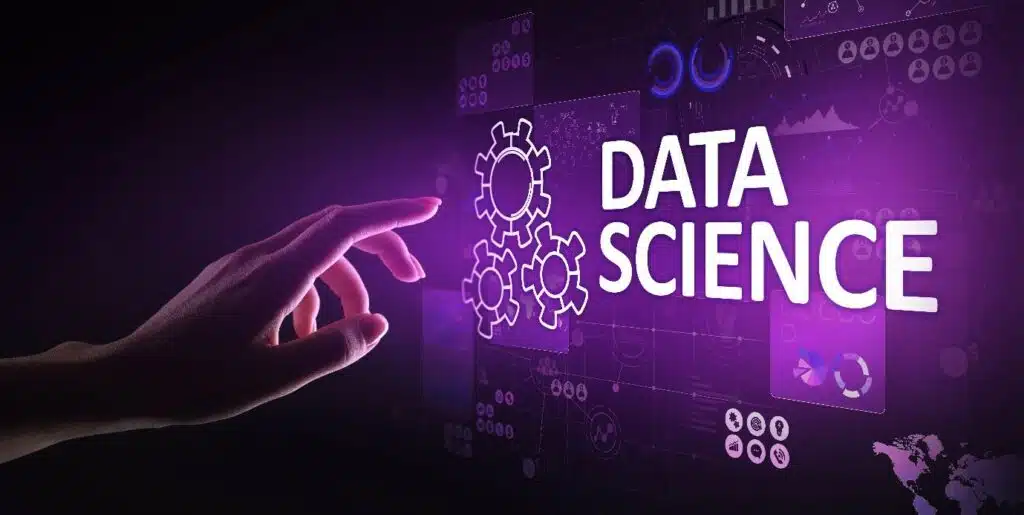Listen to this blog
Data science has become one of the indispensable tools in today’s data-driven organization to extract insights from valuable data. The development of big data, data analysis, and quantitative statistics has increased the demand for data scientists. These professionals are computer scientists and database and software programmers knowledgeable about complex data sets, statistical and mathematical models, or advanced machine learning techniques.
Data science is evolving everyday, and organizations seek candidates interested in learning and staying up-to-date with the latest tools. Let’s learn more about the requirements that recruiters look for in data scientists.
Strong Technical Skills
Data scientists must know and understand programming languages (like Python and R) to manipulate, analyze, and visualize large datasets. It helps them clean and preprocess data, perform statistical analyses, and build machine learning models. Moreover, data scientists use these languages for automating repetitive tasks, implementing algorithms, and creating custom solutions.
Besides, these professionals should learn data manipulation libraries, including pandas in Python and dplyr in R. It helps them manipulate data, handle missing values, merge datasets, and perform aggregations.
Machine learning is another fundamental skill required by data scientists like sci-kit-learn in Python and caret in R. These include regression, classification, clustering, and dimensionality reduction algorithms to train, validate, and deploy machine learning models effectively.
Data Analysis and Visualization
Data analysis refers to inspecting, cleaning, and transforming unstructured data into valuable insights or meaningful information. However, data analysis alone does not control data science because it needs powerful visualization tools like Tableau or Power BI. These tools help create interactive dashboards and reports from different data sources for users. These reports include graphical representation or visual forms which are understandable in a simple form.
Additionally, cleaning and preprocessing data is also important. It involves removing irrelevant or incorrect information, handling missing values, and standardizing data formats. Preprocessing also involves transforming data into a suitable format for analysis, such as normalizing or scaling variables. It enhances the accuracy and effectiveness of subsequent analysis techniques. These techniques range from basic descriptive statistics to advanced algorithms like machine learning and predictive modeling.
Domain Knowledge
Domain knowledge in data science refers to the background knowledge of the subjects used to model data or generate insights. The organization makes informed decisions based on this data applicable in fields like engineering, law, medicine, or finance.
Domain knowledge is crucial for choosing the correct features from the data. Data cleaning and feature engineering transform the data, making it ready to use. For example, in finance, domain knowledge enables data scientists to analyze market trends and predict stock market prices. It also enhances the decision-making process in banking or investment.
Problem-Solving and Critical Thinking
Data is often incomplete and unstructured in its raw form. Data scientists must navigate these complexities to extract meaningful information and make data-driven decisions. Problem-solving skills are essential for fine-tuning algorithms and optimizing resource utilization. It also involves communicating findings and solutions to stakeholders in an understandable manner.
Critical thinking helps data scientists assess data quality and relevance. They can formulate hypotheses and design experiments or analyses to test these hypotheses rigorously. Critical thinking is crucial for identifying underlying business objectives and constraints.
In the real world, data scientists develop predictive models to assist doctors in diagnosing diseases based on medical history and test results. There are NLP techniques to analyze and understand large volumes of sentiment analysis of customer reviews or chatbot development for customer support in the retail industry.
Communication Skills
Effective communication lets data scientists understand stakeholders’ requirements, objectives, and constraints. Moreover, data scientists working with cross-functional teams must give constructive feedback and inputs to refine the analysis and models.
Non-technical stakeholders need to make decisions based on data-driven insights. Data scientists must translate their findings into simple, actionable recommendations to understand. It promotes alignment and a shared vision for the project.
When everyone understands the project’s aims, it stays on track and succeeds. It reduces the risk of misunderstandings or frequent changes. Moreover, communication allows professionals to foster an environment of continuous improvement.
Adaptability and Continuous Learning
Data science is not static because new algorithms, tools, and methodologies are growing regularly. Professionals have access to diverse and more extensive datasets, which requires them to work with structured, unstructured, and streaming data. For example, a healthcare data scientist must know the latest medical research and regulations to ensure their models and predictions are accurate and compliant.
You can attend conferences, speaker events, and workshops to learn the latest trends and developments. Platforms like Coursera, edX, and Udemy offer various data science courses, including machine learning, deep learning, and data visualization.
Teamwork and Collaboration
Data science projects involve professionals from various backgrounds and areas of expertise. Teams may include data scientists, statisticians, engineers, domain experts, and business analysts. Teamwork and collaboration enable effective communication and knowledge sharing among team members. Everyone can discuss ideas, share their expertise, and provide feedback. It fosters creativity and encourages exploring alternative approaches to problem-solving.
For example, data scientists collaborate with data engineers and analysts to collect, clean, and preprocess data. Engineers help set up data pipelines, while analysts assess and validate data quality.
Experience and Portfolio
Data science involves a combination of mathematics, statistics, programming, and domain-specific knowledge. Practical experience allows individuals to apply the theoretical concepts they’ve learned in real-world scenarios. It hones problem-solving skills like data cleaning, feature engineering, and model selection.
Creating personal data science projects demonstrates initiative and a genuine passion for the field. These projects and open-source contributions offer continuous learning opportunities.
Furthermore, data scientists need a portfolio highlighting their specialization, like natural language processing, computer vision, finance, etc. It sets a candidate apart from others with similar educational backgrounds.
| Companies | Salary (1-9 years experiences) |
| TCS | 8.9 L INR |
| Accenture | 12.9 L INR |
| IBM | 15.9 L INR |
| Cognizant | 10.0 L INR |
| Wipro | 9.2 L INR |
| Tech Mahindra | 13.2 L INR |
Why must you consider MAHE for becoming a Data expert?
If you aspire to become a data scientist, then you must consider Manipal Academy of Higher Education which is a premier institution that can pave the way for your dream job. Our MSc in Data Science program provides a strong foundation in statistical analysis, machine learning, data mining, big data analytics, and predictive modeling.
The faculty at MAHE brings a practical approach to teaching, ensuring that students gain insights into the latest industry trends and best practices. Through internships, guest lectures, workshops, and industry visits, students can interact with professionals and understand the real challenges in the data science field. MAHE’s industry connections and reputation ensure that students can access various job opportunities in diverse sectors, including finance, healthcare, e-commerce, and technology. Consider MAHE as your stepping stone toward a successful career as a data expert!
Conclusion
In conclusion, aspiring data scientists should focus on developing different skills through continuous learning, taking online courses, participating in projects, and gaining practical experience. Aspiring data scientists can thrive in this ever-evolving and high-demand profession with the right skills and dedication.
Become future-ready with our online M.Sc. in Data Science program
















